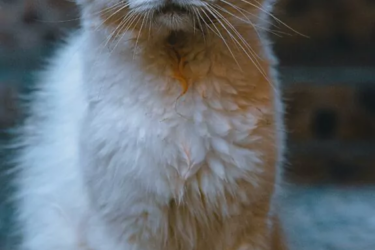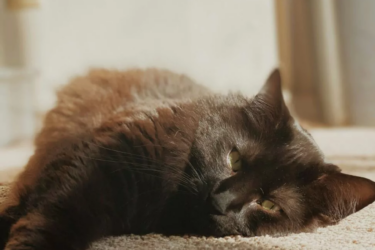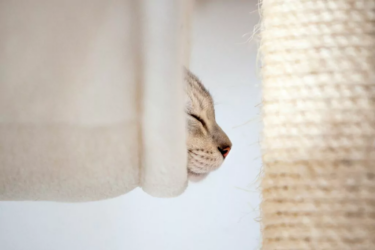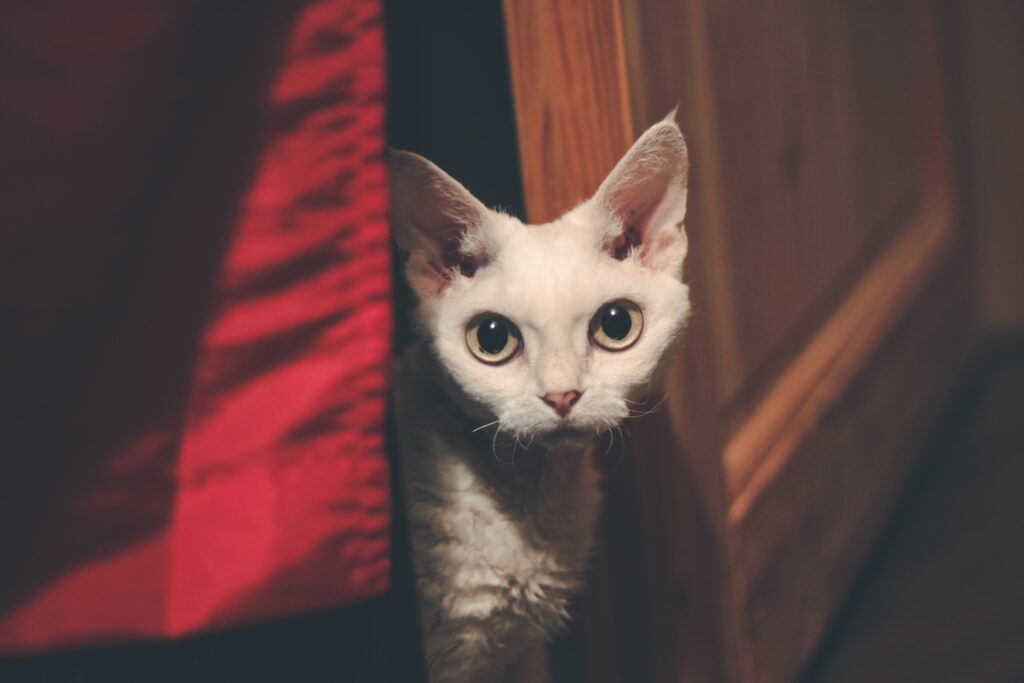
Intelligent, social, and affectionate – the Devon Rex is a unique and delightful cat breed. Learn here how to care for a Devon Rex and discover interesting facts about this breed
In this blog:
- The origin of the Devon Rex
- The personality of a Devon Rex
- The appearance and coat of a Devon Rex
- The health of a Devon Rex
- How long does a Devon Rex live?
- Caring for a Devon Rex
- Buying a Devon Rex (kitten)
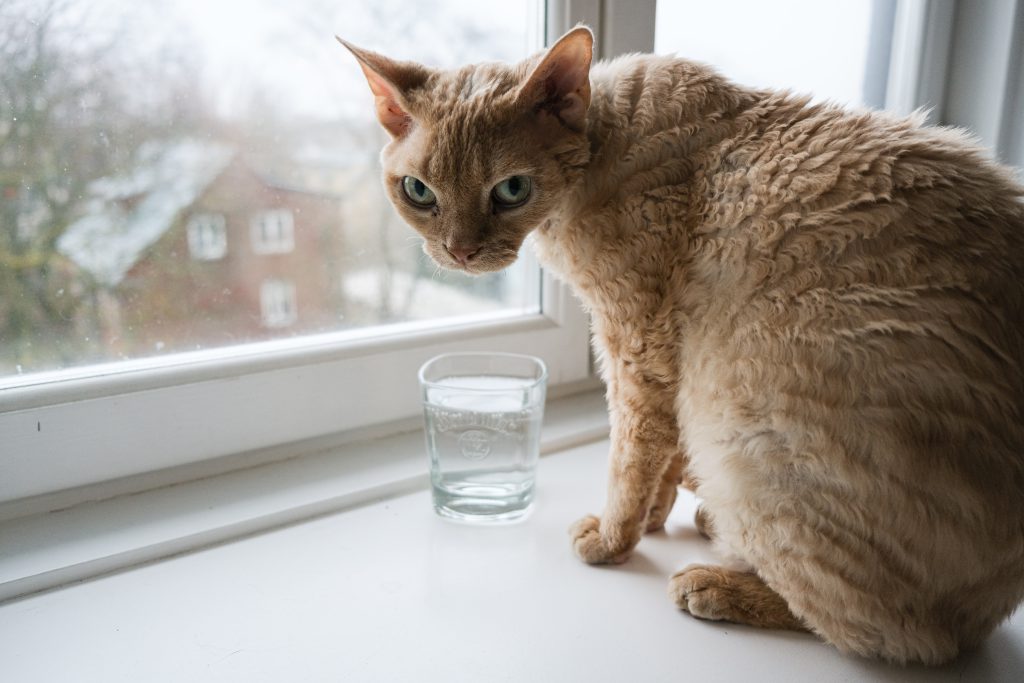
1. The Origin of the Devon Rex
The Devon Rex originates from England, specifically Devonshire. It is a close relative of the Cornish Rex and shares the same genetic makeup. However, the first Devon Rex, found as a stray on the streets, was the result of a unique natural genetic mutation. Because of its distinctive appearance, it was decided that this cat should be recognized as a separate breed, which was officially acknowledged by breed associations in 1979.
2. The Personality of a Devon Rex
A Devon Rex is social and affectionate, meaning it requires a lot of attention and time. If you can provide that, you’ll have a wonderful companion that loves to sit or lie on your shoulder.
This breed is also exceptionally active and intelligent. Devon Rex cats love playing, solving cat puzzles, and even fetching toys. Because they are so smart, they can even learn tricks – how fun is that?
Fun fact: Devon Rex cats can jump incredibly high! A tall cat tree will make them very happy!
Due to their social nature, they get along well with children and other pets. They are also comfortable around visitors or new people, but they may need a little time to adjust.
Unlike some other breeds, Devon Rex cats are generally quiet and not very talkative. They will only gently meow when they want food or some cuddle time with you.
3. The Appearance and Coat of the Devon Rex
A Devon Rex has a very distinctive appearance. Their coat is short and wavy, which is why this breed is sometimes called “the poodle of cats.” The undercoat consists mainly of soft, downy hairs.
Devon Rex cats have broad cheeks, large eyes, and oversized ears that sit low on their heads. Their unique features give them the appearance of tiny, soft elves. Unlike some other breeds, Devon Rex cats have no set breed standard for color—they can come in any color.
In terms of size, Devon Rex cats are small to medium-sized, slender, and well-muscled. Males typically weigh around 4 kg (8.8 lbs), while females reach a maximum of 3.5 kg (7.7 lbs). Their legs are long and covered in the same soft, wavy fur.
4. The Health of a Devon Rex
Pedigree cats are bred for their unique characteristics, and the Devon Rex is no exception. Some traits that make this breed special include:
- This breed does not have whiskers—and if they do, they are often short or oddly shaped.
- The Devon Rex’s coat is short and curly.
Thinking about getting a Devon Rex? Make sure to research the health of this breed thoroughly. Many pedigree cats are prone to hereditary conditions. For example, Devon Rex cats have a high risk of developing Feline Infectious Peritonitis (FIP), an infectious inflammation of the abdominal lining. It is important to be aware of this.
Want to bring home a healthy cat? Consult a veterinarian for advice. You can also check the websites of Dier & Recht and the Dutch Food and Consumer Product Safety Authority for information on the breed’s health, legal regulations, and breeder guidelines.
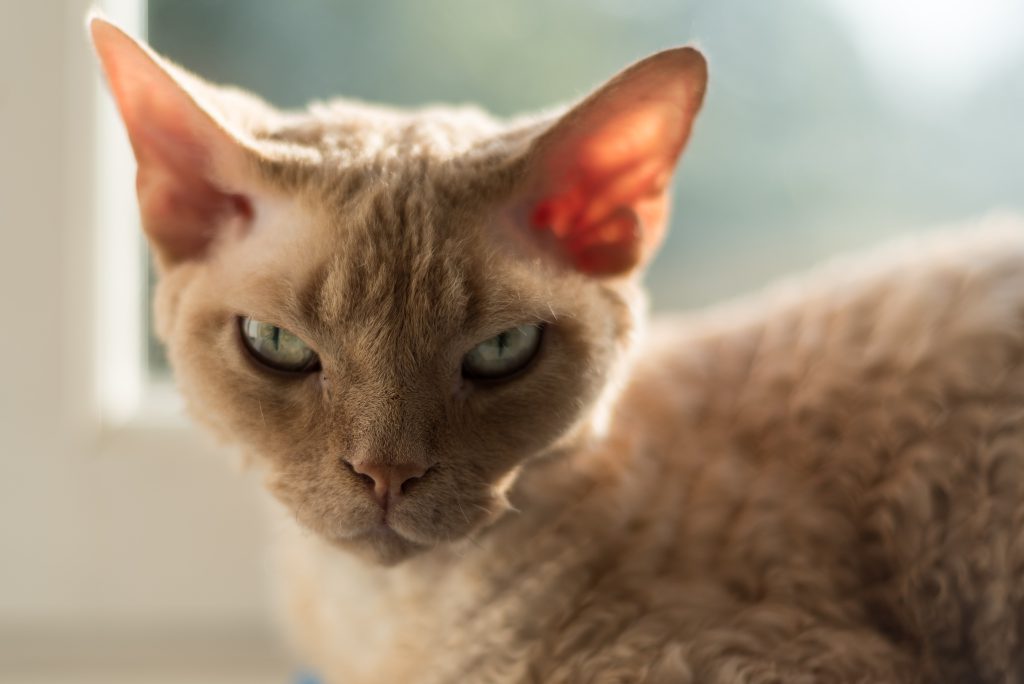
5. How Long Does a Devon Rex Live?
Depending on its overall health, a Devon Rex can live between 9 and 15 years. However, its lifespan also depends on factors like genetic conditions, diseases, diet, and overall care.
6. Caring for a Devon Rex
Devon Rex cats love food! They beg just like dogs and won’t hesitate to steal something from your plate. Since they are so active, they require high-quality cat food—this means a protein-rich, nutritious diet packed with essential vitamins and minerals.
The coat of a Devon Rex is unique compared to other cat breeds. Because of its thin fur, a Devon Rex’s skin is more susceptible to sunburn than a cat with a thick coat. Therefore, it is important to protect them from direct sunlight.
Fortunately, their coat is easy to maintain. They shed very little, but contrary to popular belief, they are not hypoallergenic—that is a myth. Brushing or combing occasionally is fine, but do so gently, as their delicate fur can be easily damaged.
General Care for a Devon Rex. Aside from these specific needs, a Devon Rex requires the same care as any other cat, including:
- A safe home
- Cuddles, love, and attention
- Multiple bowls of fresh water
- Breed-appropriate food (consult your veterinarian for recommendations)
- A clean litter box (or multiple ones) with high-quality litter
- A cozy cat bed and stimulating toys
- A tall cat tree—ideal for a Devon Rex
- Regular flea, tick, and worm treatments
- At least one annual vet check-up
- Vaccinations
Find out here how much it costs to care for a cat!
7. Buying a Devon Rex (Kitten)
Want to buy a Devon Rex? Make sure to visit a reputable breeder, preferably one affiliated with a breed association. This ensures that you are purchasing a healthy, well-socialized cat that has been ethically bred.
Always ask for official papers and a health certificate, and check the kitten’s parents. Take a look at the breeder’s facility—is it clean and homely? Are the parents present? These are good signs. Avoid buying cats from online marketplaces like Marktplaats, eBay, or from backyard breeders.
A Devon Rex from a responsible breeder costs around €800. Looking for a cat but don’t necessarily need a purebred? Consider checking shelters or adoption agencies, where many loving cats are waiting for a new home.
And remember: getting a cat is a lifelong commitment, not a temporary decision. Are you ready to provide proper care and set aside money for veterinary expenses? If so, a cat might just become your new best friend!
Discover more about the Egyptian Mau here!
Disclaimer: Petrebels is not a vet or a behaviourist: all content, information and tips on this blog are meant to inspire you and are informative only. Does your cat have complaints or problems? Or do you have doubts about your cat’s health? Always go to the vet or a behaviourist.
